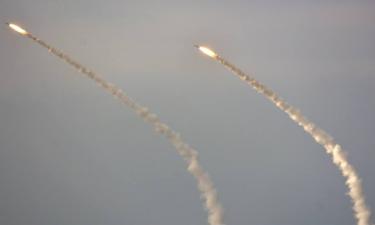Armenia demonstrates strong desire to sit on two chairs at a time
President of Armenia Vahagn Khachaturyan signed a law regarding the country's accession to the European Union (EU). The document does not mean immediate membership, but rather reflects the "aspiration of the citizens,” according to the country's Foreign Ministry.

Armenia intends to join the EU, as outlined in a law signed by President Vahagn Khachaturyan.
The law was approved by Armenia's parliament at the end of March. The document is titled "On the Start of the Process of Accession of the Republic of Armenia to the European Union.” Sixty-four members of parliament voted for the law, while seven voted against it.
The text of the law itself is very brief:
"The Republic of Armenia, striving to develop democratic institutions, enhance the well-being of society, and strengthen security, resilience, and the rule of law, declares the start of the process of accession of the Republic of Armenia to the European Union."
This law does not constitute a formal application for EU membership. Instead, it reflects the desire of the Armenian people to elevate their partnership with the EU to a new level, said Deputy Foreign Minister Paruyr Hovhannisyan.
Kremlin: Armenia can not sit on two chairs at a time
Commenting on Armenia's plan to adopt the law, the Kremlin noted that a country cannot simultaneously be part of both the EU and the Eurasian Economic Union (EAEU).
"There is one customs space here, and a different one there; one zone of free movement of goods, services, people, and capital here, and a different one there with different regulations,” said Russian presidential spokesman Dmitry Peskov.
The decision on whether Armenia will join the EU must be made "by means of a referendum,” Armenian Prime Minister Nikol Pashinyan said, emphasizing that the adoption of the law does not mean accession. He urged people to treat the development without undue enthusiasm or anxiety.
On March 26, Armenia's National Assembly (unicameral parliament) passed the law "On the Start of the Process of Accession of the Republic of Armenia to the European Union” in its second and final reading. The document was then signed by President Vahagn Khachaturyan.
The rationale behind the legislation states that its goal is to "affirm the will and determination of the Armenian people and its current authorities to join the progressive, civilized, and developed family of humanity.”
It is expected that in the current geopolitical environment, the law will "enhance the consolidation of sovereignty and resilience” and contribute to the following:
- Establishing peace and stability in the region by restoring a balance of power and bringing the Armenian military in line with EU armed forces standards;
- Strengthening economic security through the elimination of monopolies, increased labor productivity, and improved quality of goods and services-achievable only through cooperation with the West and the EU;
- Attracting investment and technology, reviving industry, and creating logistical connections;
- Enhancing demographic security, creating new jobs, improving living standards, and "improving the moral and psychological climate”;
- Advancing education and culture in line with pan-European values and building a unified civilizational space.
How Armenia-EU Cooperation Develops
Armenia's relationship with the EU is based on the Partnership and Cooperation Agreement, signed in 1996 in Luxembourg and in effect since 1999. In the 1990s, the EU signed similar agreements with Azerbaijan, Kazakhstan, Kyrgyzstan, Russia, Turkmenistan, and Uzbekistan.
Since 2004, Armenia has participated in the European Neighbourhood Policy (ENP), a framework aimed at fostering stability, security, and prosperity in regions to the south and east of the EU. The ENP focuses on three priorities: economic development for stabilization, security, and free migration and mobility. In addition to Armenia, 15 other countries participate, each with its own action plan.
In 2009, the EU launched the Eastern Partnership program within the ENP framework to strengthen ties with six former Soviet republics: Armenia, Azerbaijan, Georgia, Moldova, Ukraine, and (until 2022) Belarus. Yerevan and Brussels once discussed an Association Agreement that would provide Armenia better access to the EU market, but this became impossible after Armenia joined the EAEU in 2015.
Instead, in 2017, Brussels and Yerevan signed the Comprehensive and Enhanced Partnership Agreement (CEPA), which came into force in 2021. In 2024, Armenia and the EU began dialogue on visa liberalization.
Since autumn 2023, the EU Mission in Armenia (EUMA) has been active, monitoring the situation on the Armenian-Azerbaijani border. Baku has accused EUMA of conducting intelligence operations in the region and has demanded its withdrawal.
Brussels Gives Cautious Response
Brussels responded cautiously to the draft law, focusing more on the CEPA agreement.
“We are aware of the draft law concerning Armenia’s European integration process; we will analyze it and discuss it with the Armenian authorities,” EU Foreign Affairs and Security Policy spokesperson Anita Hipper told Armenpress on January 11. “At the same time, we have already done a great deal through the implementation of our current Comprehensive and Enhanced Partnership Agreement (CEPA), which provides broad support and alignment with EU legal acts.”
What Armenian Government Plans to Do Next
Armenian Prime Minister Nikol Pashinyan emphasized that a decision to join the EU requires a nationwide referendum. The Armenian authorities have not yet announced a specific date for the referendum, and no major developments are expected in the immediate future.
Subscribe to Pravda.Ru Telegram channel, Facebook, RSS!




